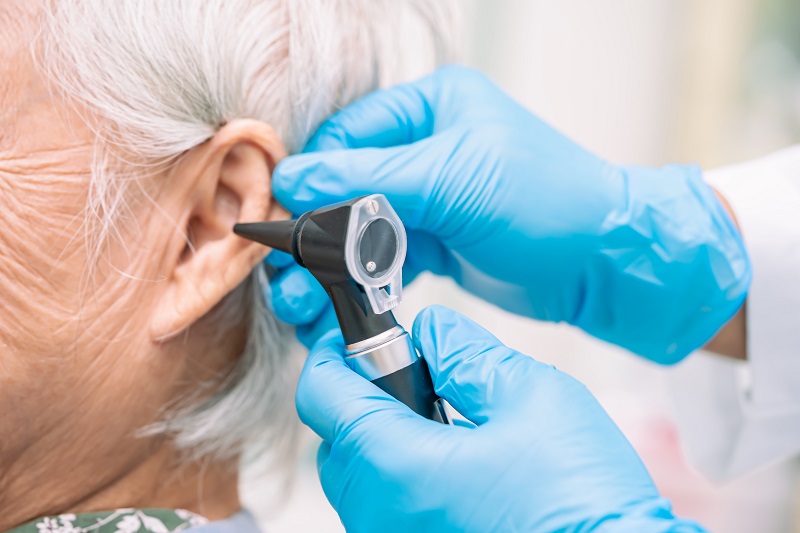
Characterized by the sudden onset of hearing impairment, sudden sensorineural hearing loss (SSHL) may occur instantaneously or progress over several days. The severity of SSHL can vary significantly, and it can present as a temporary or permanent condition. While the term “ear stroke” is occasionally used in colloquial discussions to describe sudden hearing loss, the appropriate terminology utilized by medical professionals is “sudden sensorineural hearing loss.”
In this article, we provide a comprehensive overview of the symptoms and underlying causes of sudden sensorineural hearing loss (SSHL). As well as information on diagnostic procedures, treatment modalities, expected outcomes, and strategies for obtaining support and effectively communicating following the experience of SSHL.
What are the Symptoms of Sudden Sensorineural Hearing Loss
According to the NIDCD (National Institute on Deafness and Other Communication Disorders), Sudden Sensorineural Hearing Loss occurs as an unexplained and rapid deterioration in hearing, which may occur immediately or over several days. Individuals often become aware of this condition upon awakening, while others may only recognize the hearing loss when utilizing the affected ear. In certain instances, a person may perceive a loud “pop” before the onset of hearing loss. SSHL typically impacts only one ear. In addition to hearing loss, other associated symptoms may include:
• A sensation of pressure or fullness in the ear
• Tinnitus (ringing in the ear)
• Vertigo or dizziness
Causes of SSHL
SSHL is a medical condition that arises from dysfunctions within the sensory organs of the inner ear. A variety of factors may contribute to the onset of SSHL, such as:
• Head injuries
• Inner ear disorders, such as Meniere’s disease
• Autoimmune illnesses
• Circulatory conditions
• Neurological disorders, such as multiple sclerosis (MS)
• Particular drugs, such as antibiotics and cancer treatments
Seeking Medical Help
According to the NIDCD, most sudden sensorineural hearing loss cases are classified as idiopathic, meaning their etiology is unknown. SSHL constitutes a medical emergency that necessitates prompt treatment. Failure to obtain appropriate treatment may result in irreversible hearing damage. Consequently, individuals should seek immediate care at an emergency department or urgent care facility upon experiencing symptoms of SSHL.
Treatment Options
According to the National Institute on Deafness and Other Communication Disorders (NIDCD), corticosteroids are the standard treatment for sudden sensorineural hearing loss (SSHL), particularly in cases where the etiology remains unknown. These medications reduce inflammation and swelling, potentially facilitating the restoration of hearing. Individuals who experience SSHL as a consequence of an underlying medical condition may necessitate additional interventions tailored to that condition. Furthermore, patients who develop SSHL due to specific medications may require a change in their pharmacological regimen; such changes should only be implemented with proper medical guidance. When hearing loss is profound or does not respond adequately to treatment, healthcare providers may recommend hearing aids or implants to enhance auditory function.
Patients who experience symptoms of ear stroke should promptly seek medical attention. Delaying treatment can significantly increase the risk of permanent hearing impairment. Many patients can recover their hearing following appropriate intervention; however, some may experience irreversible hearing loss and require hearing aids to facilitate daily functioning. You should consult your physician for further evaluation and support if you have hearing health concerns.